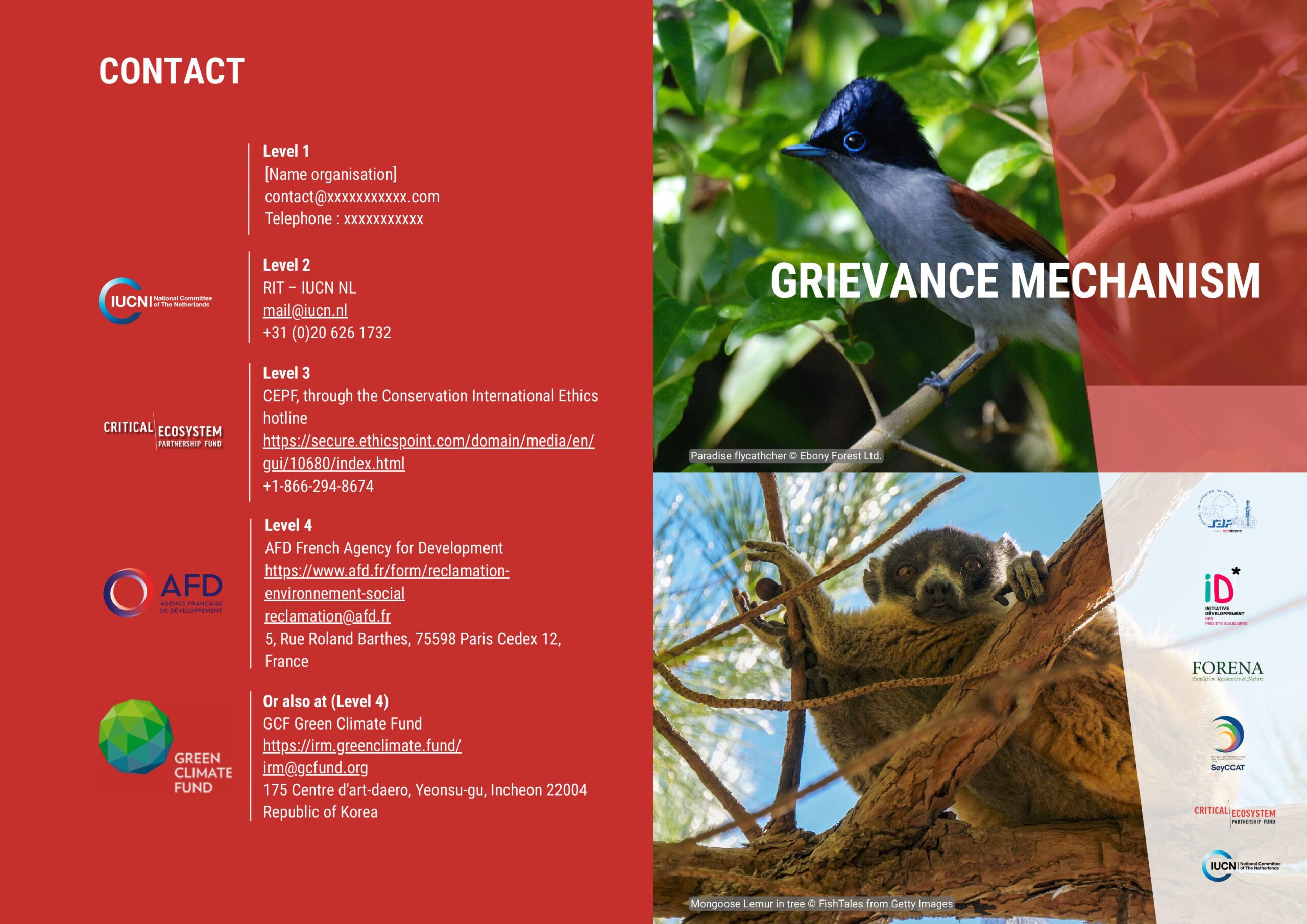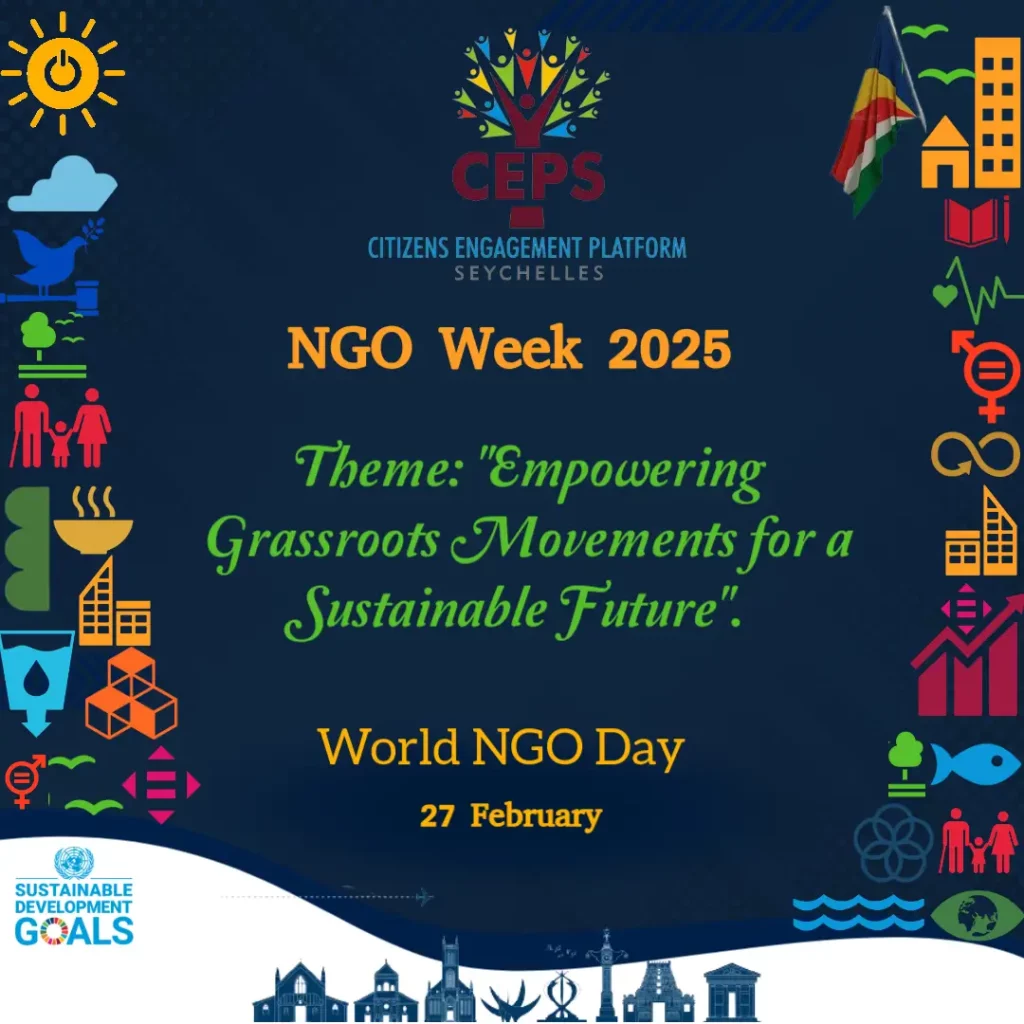The Citizens Engagement Platform Seychelles (CEPS) which represents civil society organizations in Seychelles welcomes the opportunity to comment on the speech made by Chief Justice- Dr. Mathilda Twomey upon her ceremonial farewell at the Palais de Justice . The capacious and frank harangue contained elements which resonate profoundly with principles held by civil society and it simultaneously highlighted areas where (given its importance as a separate pillar) civil society should be involved in as part of the efforts of national consultations, good governance, transparency and accountability.
We greatly welcome the idea of a Judicial Services Committee- one led by the judiciary, civil society and other stakeholders for judicial appointments, performance and discipline. Such initiative is befitting of accountability and transparency. We understand that the judiciary, being a separate arm of government has its own unique entities that differ from that of the executive and legislative. However, over the years, the judiciary have left an impression of mystery and inaccessibility. We often forget that the very institution, like the CJ rightly stated is here to serve the people, uphold and defend the constitution. The manner in which judges are appointed needs to be more transparent.
The call to constitutionalism made us even more aware of the fact that despite of the annual celebration of our constitution, we still have a long way to go in regard to citizen education. The courts are underutilized when it comes to the ruling of cases concerning human rights and it was only in 2019 that the constitutional court saw a significant increase in the number of constitutional cases. In her speech, the CJ stated that people often ask why the courts do not investigate accusations of corruption among many other things. These anecdotes reveal that we still have a long way to go for people to understand the roles of the institutions, their mandates, the limits to their mandates and so on. The call to constitutionalism also sheds light on the selective use of the constitution only when it benefits personal interest. This should not be the case. For by doing so, we disrespect our constitution and put into question our own integrity as a nation. Despite our limitations, as civil society, we are cognizant of the role we can take in regard to citizen education and henceforth, we will do our part as much as we possibly can.
The fact that the courts are not used for public interest litigation – the question is why? How many people want to take the issue to Court e.g. our constitution says no discrimination on any grounds but LGBTI still do not enjoy the same rights as others. Why has no one brought a case yet? For one, the person who does bring a case has to has locus standi (i.e. has been affected) and then we need a lawyer willing to take the case. In other countries there are mechanisms in place to support public interest litigation – yes lawyers are very busy and such cases do not bring a good pay-day so there are groups of law students, junior lawyers who commit time to build the case with research, etc and then it is handed over to a lawyer to argue the case before a court. This is a missing element in our legal ecosystem which leaves people without access to justice as many times lawyers may not see this as worth it. On another note, it may not be the lawyers – and people are simply unwilling to be made the object of cases. Again, civil society groups have an opportunity whereby they can direct people to the right mechanisms and help them explore options that they have.
It came out very strongly that accountability should exist on all levels of government and none should be exempted no matter the status, affiliation or authority. The courts have the utmost responsibility to ensure that accountability is not used to penalize persons who are brave enough to whistle blow. Individuals and civil society groups alike should not be victimized for being responsible citizens! Part of responsible citizenry is in fact calling out perpetrators who threaten the very fabric and integrity of our democracy.
CEPS has always been a strong advocator of gender equality and we resonated deeply with the Chief Justice’s call to the dismantling of patriarchy. We believe firmly that under no circumstance should anyone be discriminated against based on their gender. We encourage more women and girls to take up positions which involve decision making and we urge our leaders and policy makers to come up with regulations that promote and not hinder the development of our women and girls in all spheres of society.
When it comes to the protection of the legitimacy of our judicial system, politics should not become an object of interference. It is crucial that at all costs our courts remain corrupt-free institutions in which our citizens can have trust. We should not allow our differences to create division in our country.
We understand the Chief Justice’s decision to step down from her role and we appreciate the fact that she would remain present in the Court of Appeal and as an educator at the University of Seychelles. In the era of the new normal, this gives opportunities for others to step in and provide fresh ideas/ innovations. We wish Dr. Mathilda Twomey all the best in her future endeavors and extend our profuse gratitude towards her, other judges and judicial staff who are devoted to their work. CEPS wishes to see more collaborations and strengthened partnership with the office of the future chief justice.



